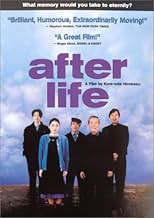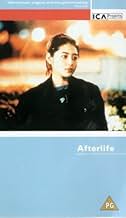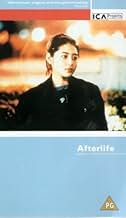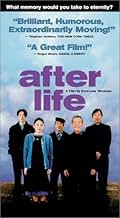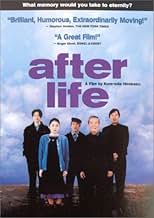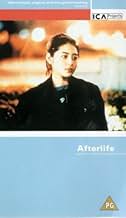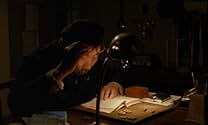After death, people have a week to choose only one memory to keep for eternity.After death, people have a week to choose only one memory to keep for eternity.After death, people have a week to choose only one memory to keep for eternity.
- Awards
- 7 wins & 8 nominations total
Arata Iura
- Takashi Mochizuki, counselor
- (as Arata)
- Director
- Writer
- All cast & crew
- Production, box office & more at IMDbPro
7.615.2K
1
2
3
4
5
6
7
8
9
10
Featured reviews
Documentary like realism of people and their re-examination of their life
The movie is told in such a way that the people coming in reveals themselves in such a way that they all realize that there is a part of themselves in which it is truly good, even if it is deeply buried. The way it is filmed, as if it is a documentary, provides the cunning realism that you would not ordinarily achieve in regular film. Even at the end, we discover the true reason one of the counselor stayed around instead of moving on. Truly a touching and thought provoking film. It will make you try to think for yourself which memory you would cherish forever, even if it is single one.
The Best Moment of Our Lives
Every Monday morning, a team of advisors welcome in a facility a group of people that has just died with the mission of helping each one of them to select their best memory that will last for the eternity in the first three days. On Thursday, filmmakers begin to recreate the selected memory, and in the end of the week they screen it in a movie theater and he or she moves to Heaven.
I bought "Wandâfuru Raifu", or "After Life" on DVD, since I was very intrigued with the summary on its cover. I saw this low budget movie spoken in Japanese with English subtitles and I found the story very original and provocative. The premise of rebuilding eternity along a week, like God created Earth, and Heaven be a projection of a movie of the best memory one could have, is fantastic. In spite of having unexplained points, like for example the need itself of lasting with only one single memory, and inconsistencies, like why the need of shooting the memory, if the staff can bring videotapes of the entire life, what matters is the originality of this unique movie. One point that has always impressed me in cinema is the fact the actors and actresses last forever in the eyes of the audiences along generations. In this movie, each one of us has the chance to be an actor or actress, and write our own screenplay. Further, I personally recalled many good moments of my life just because of the storyline of this movie, and I found how difficult it could be to select only one good moment of my life to last forever. My vote is seven.
Title (Brazil): "Depois da Vida" ("After Life")
I bought "Wandâfuru Raifu", or "After Life" on DVD, since I was very intrigued with the summary on its cover. I saw this low budget movie spoken in Japanese with English subtitles and I found the story very original and provocative. The premise of rebuilding eternity along a week, like God created Earth, and Heaven be a projection of a movie of the best memory one could have, is fantastic. In spite of having unexplained points, like for example the need itself of lasting with only one single memory, and inconsistencies, like why the need of shooting the memory, if the staff can bring videotapes of the entire life, what matters is the originality of this unique movie. One point that has always impressed me in cinema is the fact the actors and actresses last forever in the eyes of the audiences along generations. In this movie, each one of us has the chance to be an actor or actress, and write our own screenplay. Further, I personally recalled many good moments of my life just because of the storyline of this movie, and I found how difficult it could be to select only one good moment of my life to last forever. My vote is seven.
Title (Brazil): "Depois da Vida" ("After Life")
Visually electric
Afterlife is without a doubt one of the greatest Japanese films I've ever seen. Visually it is truly stunning. Kore Eda is known for his own obsession with lighting and his skill for casting shadows and beams of white light are second to none. Combined with an innovative, creative and enjoyable story that takes on a slightly supernatural docu-drama and at the same time is set in a dull, down and out halfway house between Earth(life) and heaven(afterlife). Fascinating scenes take place as the deceased have one week to decide on a single memory from their lifetime that they can keep for all eternity. He also includes elements of documentary with talking head scenes of the deceased talking about their memories. Kore Eda throws around some extremely interesting ideas and themes on life and human emotions for our memories and he genuinely makes you think about what he's said once you've finished watching.
This is a film that not everyone would enjoy due to its slow moving pace, mood orientated lighting and partly improvised script, but it is a creative masterpiece that is definitely worthy of high praise and attention.
This is a film that not everyone would enjoy due to its slow moving pace, mood orientated lighting and partly improvised script, but it is a creative masterpiece that is definitely worthy of high praise and attention.
why does my life suck
this movie was lovely. i could relate to the people and what they chose as their memories. i wanted to find a memory but i couldn't find one i would want to spend eternity with. so this movie has actually made me want to create beautiful memories before it is too late. see this movie, it might make you evaluate your own life.
9KFL
A thought experiment for humanists (and for humanists only)
The Afterlife is best thought of as a kind of thought experiment, perhaps in the same vein as Groundhog Day. The point is not that this may be what we experience after death; it is rather that we need to think more about what it is in this life that we'd really like to keep with us forever.
This point needs emphasis. When asked what we want most in life, most of us will talk about our career, or a business venture perhaps, or some other accomplishment. This movie suggests that these kinds of things may not, at the end of the day, be so important as some other experiences we may have. In any case, it challenges us to rethink what it is we really value.
Some reviewers complain about the quite ordinary surroundings and "poor production values" of the movie. I prefer to think of the choice of sets etc as humble and realistic. Could any movie, whatever its budget, ever possibly do justice to this subject matter?
Much of this movie is devoted to explorations of the lives of a number of rather ordinary people, trying to identify their most cherished memories. Some reviewers have condemned The Afterlife as boring, boring, BORING on this account. It all depends on whether other people interest you. If all you want to see is car chases, sex, explosions, cool special effects,...avoid this movie. Only, it's worth noting that the lives and thoughts of others may help us to better understand ourselves. And nowhere more so than in this movie.
This point needs emphasis. When asked what we want most in life, most of us will talk about our career, or a business venture perhaps, or some other accomplishment. This movie suggests that these kinds of things may not, at the end of the day, be so important as some other experiences we may have. In any case, it challenges us to rethink what it is we really value.
Some reviewers complain about the quite ordinary surroundings and "poor production values" of the movie. I prefer to think of the choice of sets etc as humble and realistic. Could any movie, whatever its budget, ever possibly do justice to this subject matter?
Much of this movie is devoted to explorations of the lives of a number of rather ordinary people, trying to identify their most cherished memories. Some reviewers have condemned The Afterlife as boring, boring, BORING on this account. It all depends on whether other people interest you. If all you want to see is car chases, sex, explosions, cool special effects,...avoid this movie. Only, it's worth noting that the lives and thoughts of others may help us to better understand ourselves. And nowhere more so than in this movie.
Did you know
- TriviaMuch of the action in After Life is shown as interviews conducted with the recently deceased regarding their lives. Some of these interviews were scripted, but many were done impromptu, with real people (not actors) reminiscing about their own lives.
- Quotes
Kenji Yamamoto, who wants to forget his past: Say I choose a memory, from when I was eight or ten years old. Then I'll only remember how I felt back then? I'll be able to forget everything else? Really? You can forget? Well, then that really is heaven.
- How long is After Life?Powered by Alexa
Details
Box office
- Gross US & Canada
- $801,985
- Opening weekend US & Canada
- $11,791
- May 16, 1999
- Gross worldwide
- $801,985
Contribute to this page
Suggest an edit or add missing content



